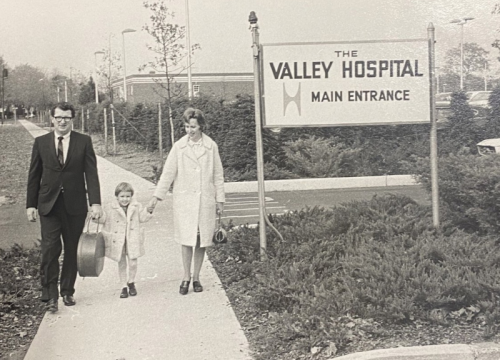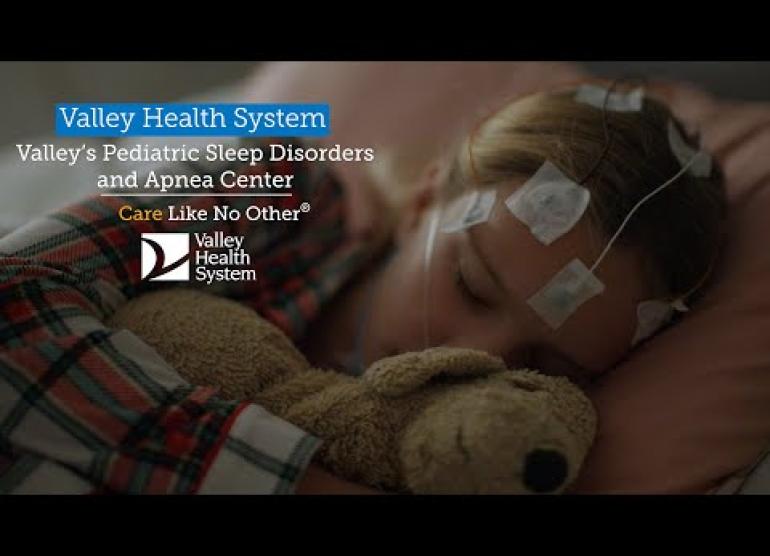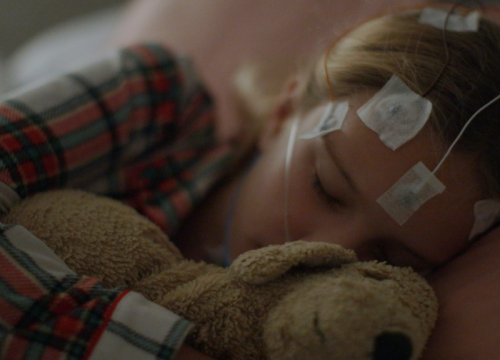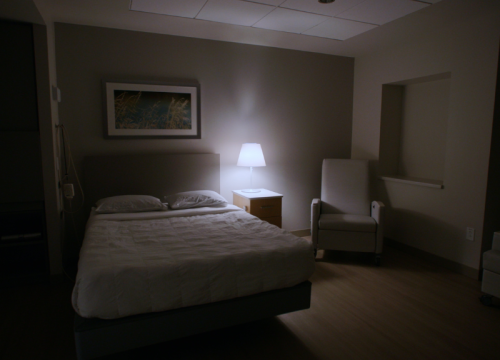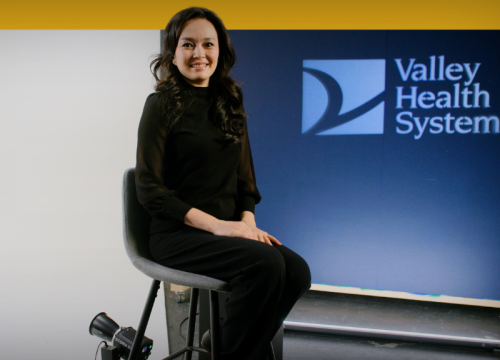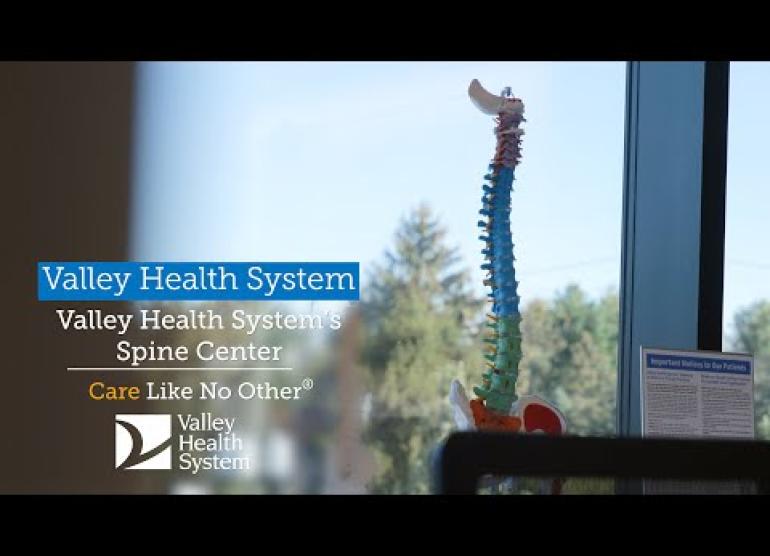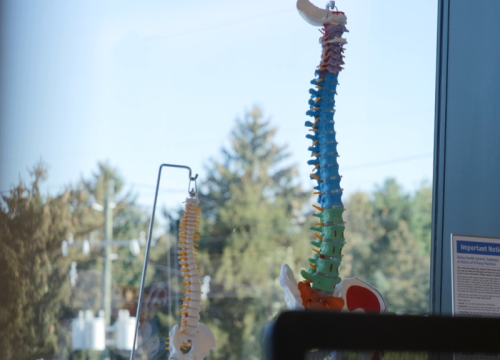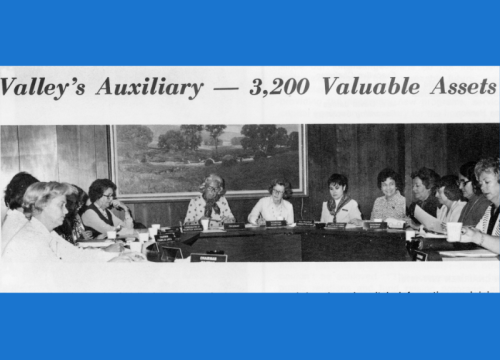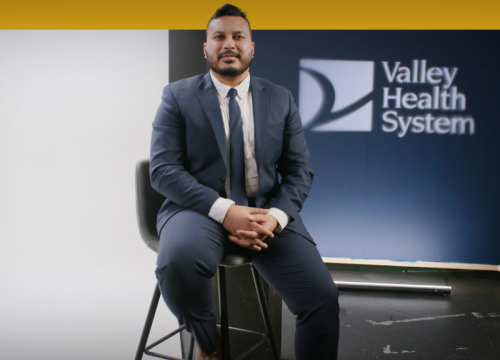Having atrial fibrillation (AFib) increases your risk of stroke by five times. Blood thinner medicines can reduce these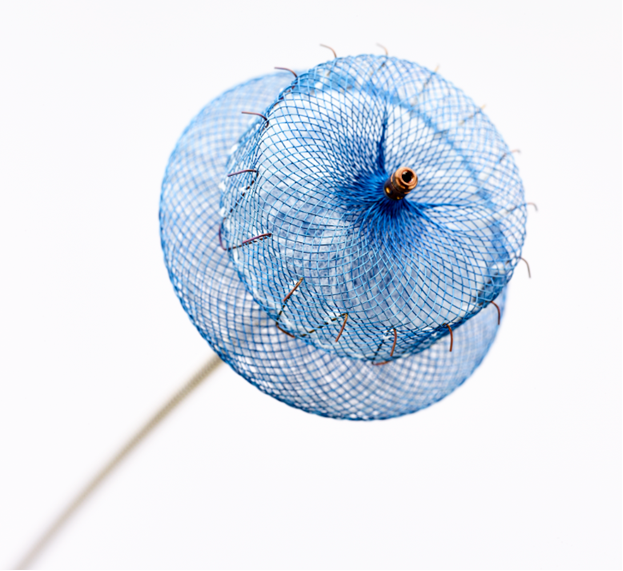 risks, but they aren’t the best option for everyone.
risks, but they aren’t the best option for everyone.
That’s why Valley offers the Amplatzer Amulet Left Atrial Appendage Occluder, an alternative to blood thinners for some people. This device can reduce stroke risks for people with AFib not caused by heart valve problems. The Amulet is implanted during a minimally invasive procedure called a left atrial appendage (LAA) closure.
Valley’s electrophysiology team is highly skilled at performing LAA closure procedures with the Amulet. They also have extensive experience performing LAA closures with another device, the Watchman implant.
Am I a Candidate for the Amulet?
The Amulet device might be right for you if you have AFib that is not caused by heart valve disease. It could be a good option for you if you have one of the following:
- A history of major bleeding while taking blood thinners
- A career or lifestyle that increases the risk for major bleeding due to trauma
- Prior stroke despite taking blood thinners
- Difficulty taking blood thinners as prescribed
Talk to your electrophysiologist at Valley to find out if the Amulet may be right for you. If not, you may be a candidate for another option, the Watchman device.
How Does the Amulet Work?
When you have AFib, blood can pool in a pouch in your heart called the left atrial appendage (LAA). This is where most blood clots form. If a clot gets loose and travels to your brain, it can cause a stroke.
The Amulet is a type of implant that uses two different seals to completely close off the LAA. This keeps clots from entering the bloodstream and eliminates the need for blood thinners for most people.
Preparing for Your Amulet Procedure
Here’s what you can expect if you are preparing for an Amulet procedure:
- You will come to Valley for a computed tomography (CT) scan using advanced software called TruPlan. Our team uses this software to plan your procedure, which ultimately results in less time under anesthesia and fewer complications.
- We will choose the right size of the device to use during your procedure from your CT scan. We will also plan where to implant the Amulet in your LAA.
- Our team will give you instructions about taking your medications before your procedure. We’ll also explain what to bring to the hospital and when you should stop eating and drinking the night before.
What to Expect During Your Amulet Procedure
Here’s what you can expect if you have an Amulet procedure:
- Plan to have someone to drive you to and from the hospital on the day of your procedure. You’ll need someone to drive you home after the procedure.
- At the hospital, an anesthesiologist will give you local anesthesia and a sedative to make you feel relaxed.
- Your electrophysiologist and interventional cardiologist will make a small incision in your groin to reach a vein.
- They will insert a catheter (thin tube) with the device into the vein and thread it up to your heart.
- They will place the Amulet over the LAA opening to close it off completely.
- They will remove the catheter from your vein and close the incision with a suture (stitch).
- The procedure takes one to two hours.
Recovery After Your Amulet Procedure
Here’s what to expect after an Amulet procedure:
- Some people can go home the same day. But most people stay overnight in the hospital and go home the following day.
- You should be able to return to your usual activities in a few days.
- Your electrophysiologist will talk to you about when it’s safe to stop taking blood thinners after your procedure. Many people can stop taking them immediately after the procedure.
Why Choose Valley for the Amulet Procedure?
- Specialty care in LAA closures: Our electrophysiologists and interventional cardiologists have performed hundreds of left atrial appendage closures. Our team was also the first in the world to use TruPlan software to personalize LAA closure procedures. This in-depth planning is important because no two left atrial appendages are the same.
- A full range of AFib services: Specialists at the Snyder Center for Atrial Fibrillation offer medication, weight management, nutrition counseling management and other treatments for AFib. We also provide the support you need to make lifestyle changes to improve your symptoms and overall health.
- Leaders in AFib research: Our electrophysiologists lead clinical trials testing the latest treatments for AFib and other arrhythmias. This means we can offer the latest devices and other advances to patients in our own community.
- Clear communication: Every member of our care team makes it a priority to listen to your questions and concerns. Whether you reach out to your nurse navigator or doctor, you can expect to get the answers you need.


